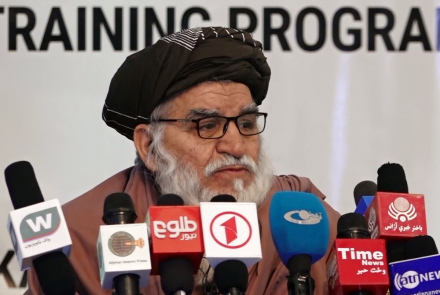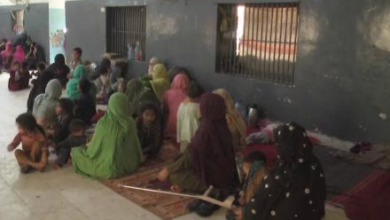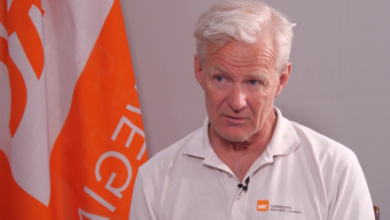Air Pollution Very High in Kabul, Especially at Night: NEPA Head

With the arrival of winter, the air in Kabul becomes increasingly hazardous, particularly during the evening hours. Matiul Haq Khalis, the acting head of the National Environmental Protection Agency, revealed in a press conference (Tuesday) that the capital’s air pollution levels have escalated to a “84 percent” at night.
Speaking at a press conference (Tuesday), Matiul Haq Khalis said that the main causes of this pollution are insufficient public awareness about the use of fuel materials and economic hardship faced by citizens.
According to Khalis, this pollution has short-term and long-term negative impacts on citizens’ health, and the media should cooperate in raising awareness in this regard.
“Our people’s economy has become so weak that when you look at Kabul or other cities with the arrival of winter, air pollution rises significantly. In the evenings, Kabul’s air is 84 percent polluted,” he said.
Matiul Haq Khalis further added that women and children are more affected than others by climate change and that the world should not politicize climate change, which is a humanitarian issue.
The acting head of the National Environmental Protection Agency emphasized: “Our society has been harmed by climate change, and the world should not link climate change issues to politics.”
Meanwhile, the deputy head of an organization working in the environmental sector in Afghanistan stated that lack of sufficient infrastructure, poverty, and economic challenges make Afghanistan more vulnerable to climate change, and global stakeholders, the private sector, and government institutions should pay attention and cooperate in this regard.
Izatullah Siddiqi, deputy head of one of Afghanistan’s environmental organizations, said: “The lack of sufficient infrastructure, the presence of poverty, and economic challenges all combine, making Afghanistan a vulnerable country.”
Saifur Rahman Rahmani, a university professor, said: “The world has the responsibility to compensate for the damage caused to developing countries, including Afghanistan. Afghanistan should be supported in adapting to climate change and reducing its impacts.”
This comes as representatives from environmental organizations and the National Environmental Protection Agency traveled to Azerbaijan between November 11th and 22nd to participate in the United Nations Climate Change Conference held in Baku, where they shared the challenges caused by climate change in Afghanistan with officials from other countries.



